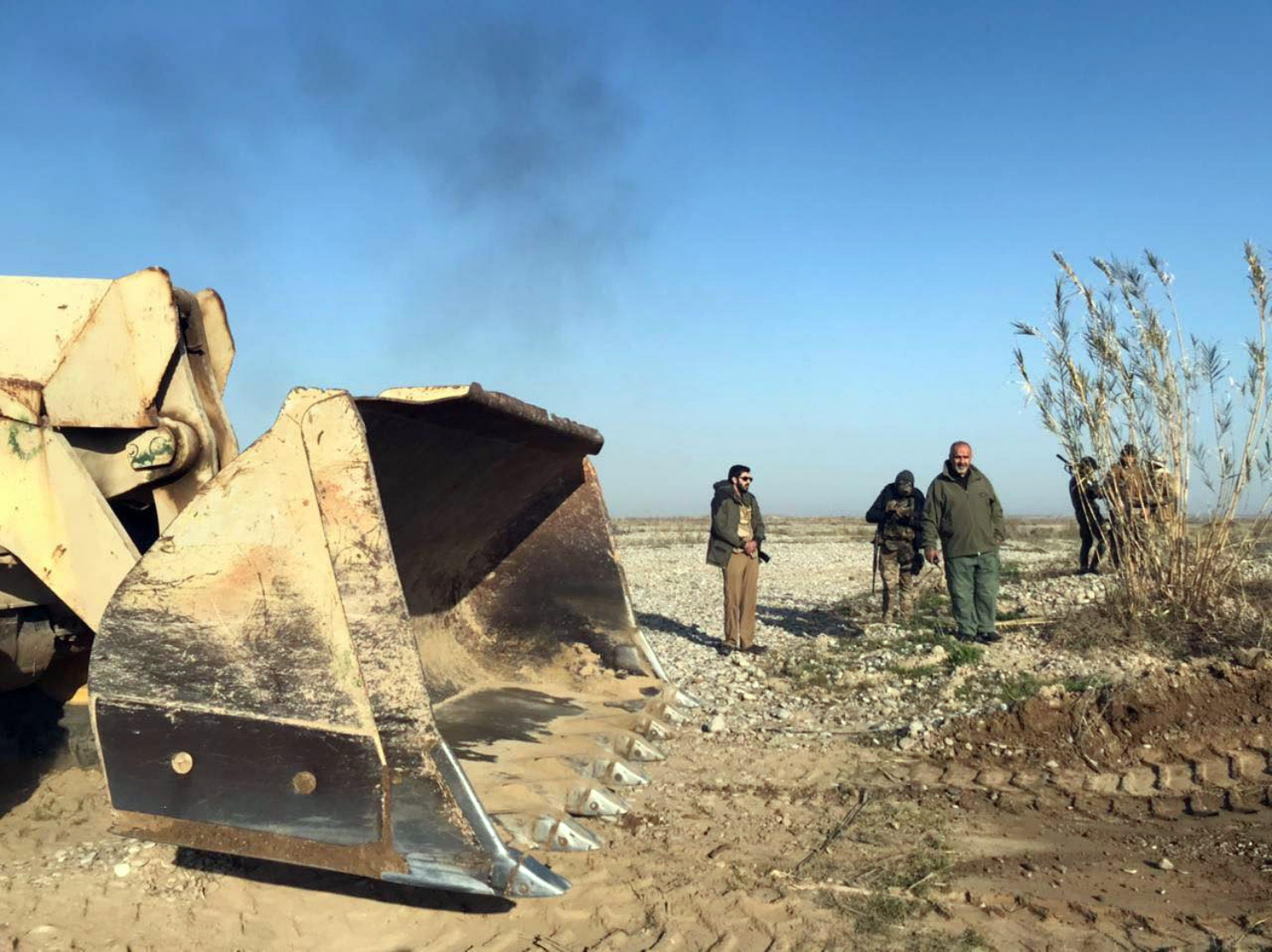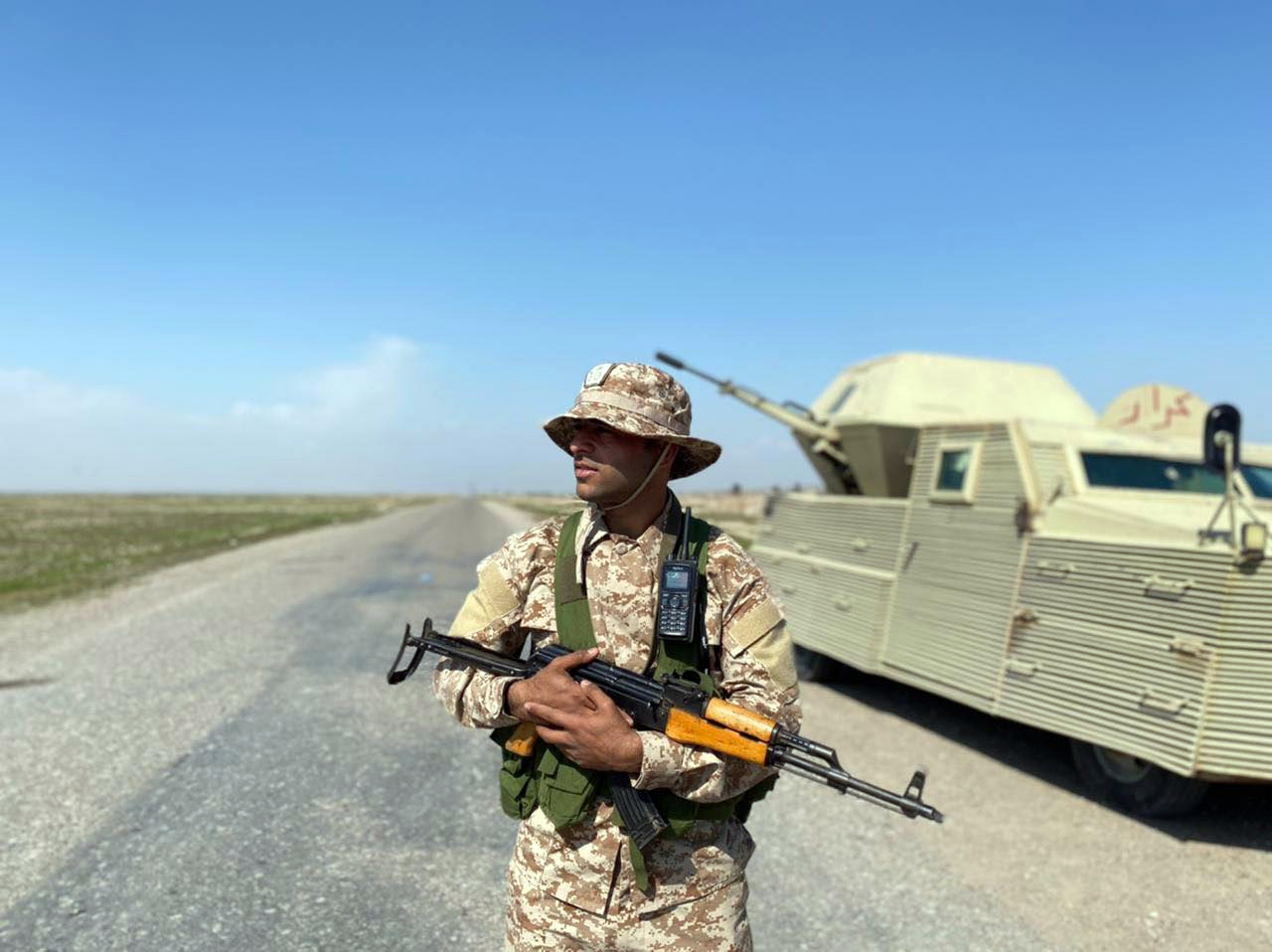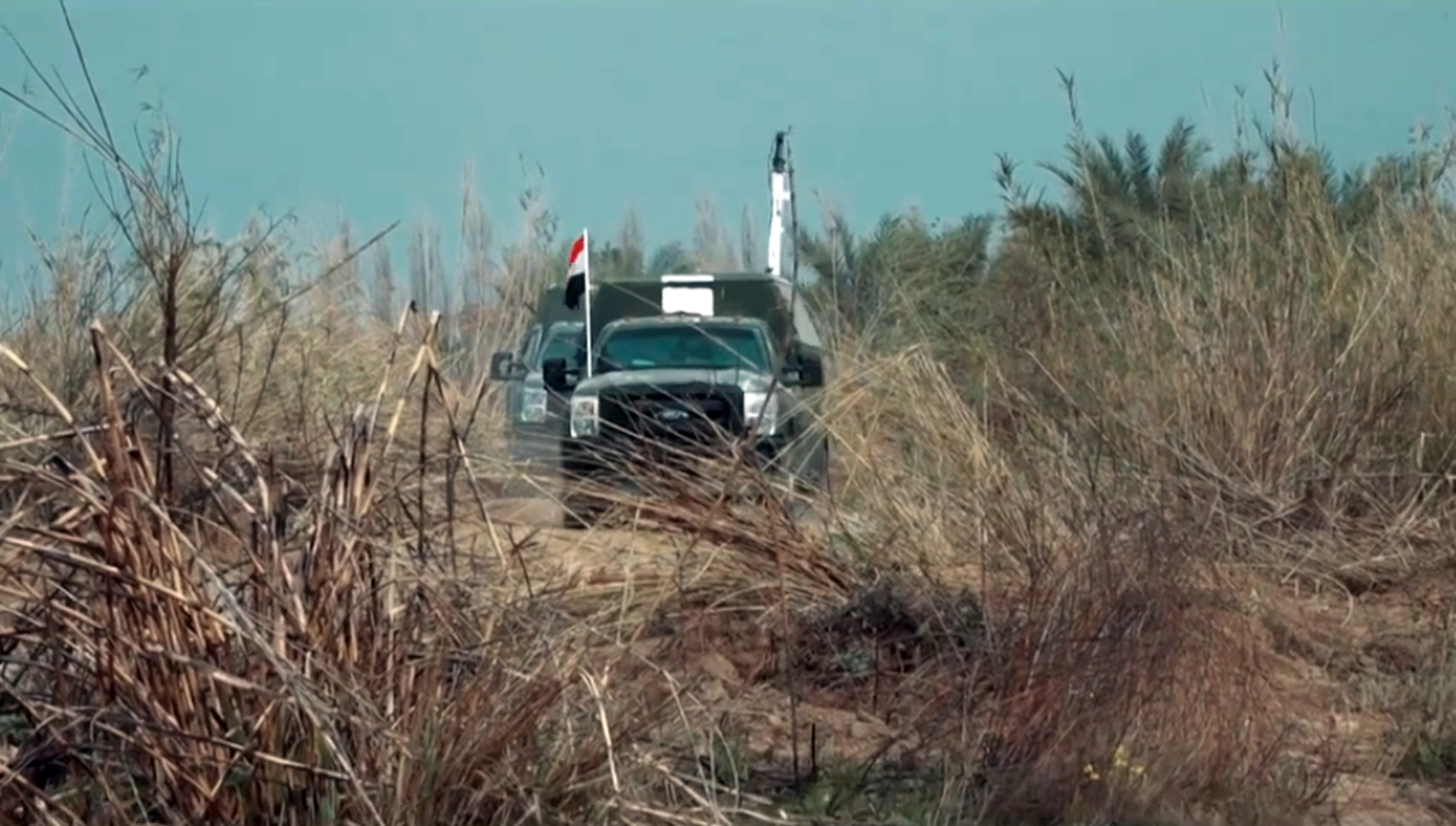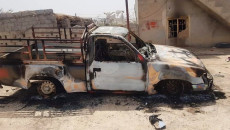Iraqi security forces have left about 5,000 donums of agricultural lands and orchards dry and destructed following a three-week operation in the outskirts of Khanaqin district of Diyala province to eliminate remnants of so-called Islamic State militants regrouping in the region and posing threats to the villagers.
The military commanders are pleased with the outcome of the operation which was hailed by the villagers whom seek compensation for their losses.
“The operation was launched successfully and hit its target because Shekh Bawa area in particular, stream of the villages of Islah and Um Huntta were completely cleared of Daesh hideouts,” said Sayid Sadiq, spokesman for Diyala sector of pro-Shiite paramilitary of Popular Mobilization Forces PMF known as al-Hashid al-Sha’bi.
The operation was launched successfully and hit its target
“Those areas were hotspots for ISIS activities in Jalawla and Khanaqin,” he added. The operations took 40 days to cover the villages and the areas on the sides of Alwan, Sirwan and Hamrin lakes, north east of Baghdad, home to thousands of square meters of orchards and agricultural landscapes.
Iraqi army forces, Rapid Response Units supported PMF in the operations.
Footage of ripping farms in Khanaqin amid the military sweep.
Locals told KirkukNow about 5,000 agricultural donums (square km) were turned into mere lands as all orchards have dried and trees were pulled out.
The farmers are cleaning the leftover of the operations in order to revive their lands, said Saif Sattar, representative of Islah village, 13 km north of Jalawla sub-district.
400 farmers and owners got severe losses following the operation but no one was compensated by the authorities.
However, the villagers are happy for restoring safety and security in the region. “Stability is restored in our region thus farmers can retake their lands which they quit and do not dare to cultivate due to Daesh activities and hideouts,” Sattar added.
“Stability is restored in our region thus farmers can retake their lands which they quit and do not dare to cultivate due to Daesh activities and hideouts,” Sattar added.
In the last few months, tens of activities were carried out by IS militants against Iraqi forces and the locals, leaving 15 member of Iraqi army and PMF killed and tens injured beside material loss to the villagers.
Following the 7-week operation, on April 20, militants attacked a village, injured two rothers, burnt houses and vehicles in the village of Ali Sabahi, northwest of Khanaqin. Iraqi army unit trying to backup villagers, were hit by an IED and snipers wounded four soldiers and officers of the convoy.
Khanqin is one of the disputed territories between Baghdad and Erbil. Following escalation of ISIS attacks in the disputed territories between Baghdad and Erbil leaving tens of casualties among Iraqi forces and civilians and causing damage to the houses and farms of the villagers, in retaliation a wide range of operations launched in th disputed territories of Khanaqin district of Diyala, Daquq of Kirkuk, Duz Khurmatu in Salahaddin and Mont Makhmour adjacent to Erbil, capital of the Kurdistan Regional Government KRG.
After 2003, article 140 of Iraqi constitution in 2005 was outlined as a framework for the determination of the fate of the disputed territories. The three-stage process requires the normalization of the areas, conducting a census, and holding a referendum to know the will of the people to join Baghdad federal government or Iraq's Kurdistan region government KRG. Up today, part of the first stage has been implemented.

Diyala March 21- A shuffle of Iraqi army opening the way through a stream for military vehicles. Photo by PMF media.
Military commanders do not admit drying orchards and agricultural landscapes and their goal is to eradicate ISIS and their hideouts, in any way and whatever it takes. Abdullah Otaibi, media officer of Brigade 28 of PMF deployed north and northwest of Khanaqin, said the operation restored stability “yet its preserving is more important through follow up.”
A bridge was built between Jalawla and Khanaqin near Islah village to facilitate transport of the military and the civilians, he added. “Locals are cooperating by exchange of information and we cooperate with them,” Otaibi said.
“Locals are cooperating by exchange of information and we cooperate with them,” Otaibi said.
Kurdish troops took control of the disputed territories falling the toppling of Saddam Hussein regime in April 2003 up to October 2017 when Iraqi government launched operation (Law Imposing) following the declaration of defeat of ISIS and took over control over the disputed territories starting from KHanaqin on the border with Iran to Kirkuk and from there up to Shingal in Mosul on the border with Syria.

Diyala March 21- Iraqi security forces patrolling the suburbs as part of Khanaqin operation. Photo by PMF Media.
The security forces have set a 3-step plan for post operation stage by first launching regular land sweep and secondly fortify deployment and finally monitoring IS activities through thermo sensitive surveillance and drone observance, Sadiq said.
Hideouts were destructed, ammo and weapons were seized, he added.
Despite activities by ISIS following the long-term sweep, Otaibi believes “it is impossible for Daesh to carry out violent acts because they lost their hideouts and ammo.”






